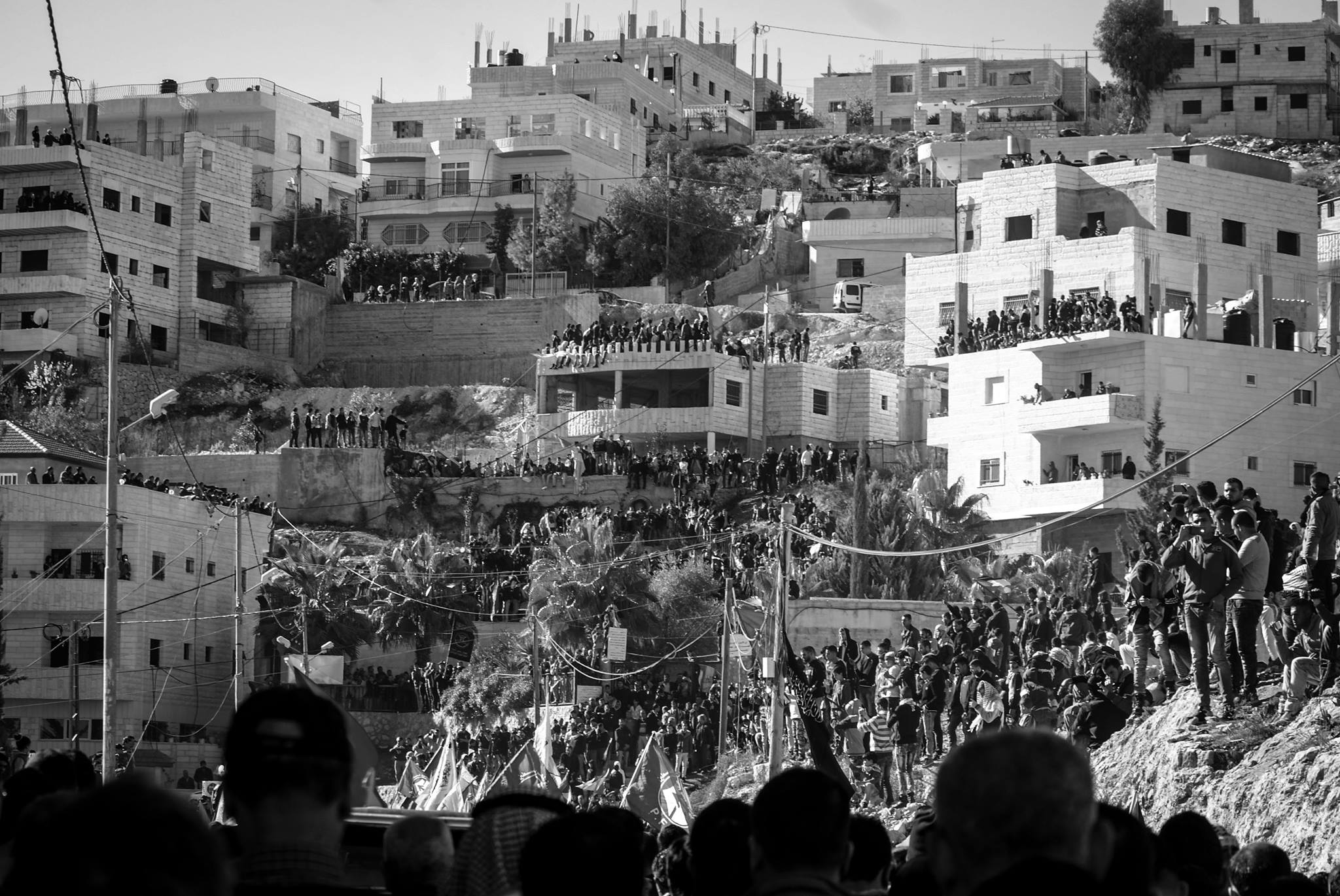Tag: Martyr
-
Thousands join the funeral of Malik Shahin, killed on tuesday in Bethlehem
9th of December 2015 | International Solidarity Movement, al-Khalil team | Hebron, occupied On Tuesday, thousands of Palestinians joined the funeral of 20-year-old Malik Akram Shahin in the streets of Bethlehem. Malik was shot dead by Israeli forces on Monday night, during a detention raid in the Dheisheh refugee camp where he lived with his family. He was…
-
Last tribute for a martyred in Bethlehem : “Motaz was happy when he was facing to the sea, it gave him a sense of freedom, lightless that he hadn’t before.”
3rd of December 2015 | International Solidarity Movement, al-Khalil team | Hebron, occupied Palestine On Wednesday 2nd December, in Dheisheh refugee camp, Bethlehem, a mass tribute for 28-year-old Motaz Ibrahim Zawara, took place. Motaz was killed by Israeli forces the previous day when he was shot with live ammunition in his chest during a demonstration at…
-
Photo story: Palestinians protest the deaths of two martyrs
17th May 2014 | International Solidarity Movement | Ofer, Occupied Palestine On the 16th May, Palestinians protest on the road to Ofer prison, following the murder of two Palestinian youths on the same road on the previous day during the Nakba Day protest. The youths, 22-year-old Muhammad Audah Abu al-Thahir and 17-year-old Nadim Siyam Nuwarah, were…



